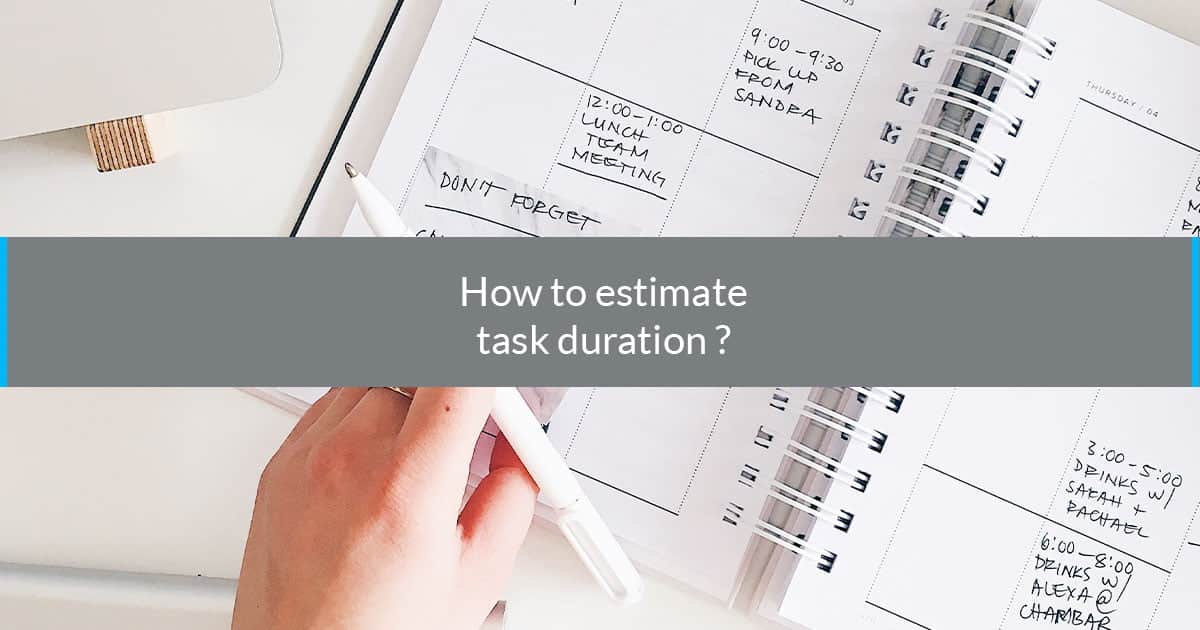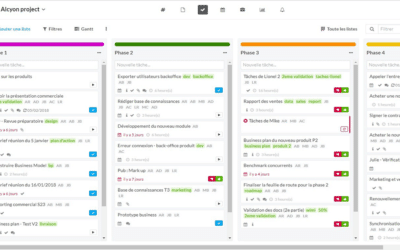Estimating the time of a project task is a game of riddles. Here are three things to take into account when you approach this exercise in project management.
- We struggle to estimate the duration of a task or an activity
- We tend to take the time allotted to us by our manager rather than the time that we really need to carry out a task
- We should always foresee delays on the schedule of a project.
Even if it seems difficult to calculate task duration, you have to calculate all the variables the best you can and determine a window in which you are certain that the work will be finished.
Here are 5 options for you to estimate task duration.
Professional judgement
Using somebody’s expertise from the team who knows exactly what the task is. They can tell you how long it will take depending on their previous experience.
If you do not have the information internally, you can call an expert and use their contribution.
Group judgement
Another way to include more voices in the estimating process means using the wisdom of the team.
Discuss the problem and the activities together and make an estimate from the results of this conversation.
It’s not particularly scientific, but this can be a good way to reach a consensus, especially if you have not already done this type of work.
Historical data (or similar estimates)
Base your estimates on the results of a previous project. If your business has already carried out a similar project and you can access the time spent for a similar task, this will give you a good idea of the duration of the same task.
Once again, if you do not have this information internally, you can rely on partner companies or published data on your industry.
This type of estimate is quicker, but you will not obtain extremely precise results.
Statistical and mathematical analysis (or parametric estimate)
If maths was not one of your favourite subjects at school, you will not like this part. If the task that you are evaluating is relatively simple and repetitive, you can use simple calculations to calculate the overall duration of the activity.
Example: if it takes an hour for somebody to dig a hole and you need ten holes, this will take ten hours of work. If you double the resources and have two excavators, it will only take five hours. If you bring a machine that operates at double the speed of one person, it will only take two and a half hours.
Not always applicable but effective on some simple tasks.
Work within a range (three point estimate)
Establish the most likely, best and worst timescales for the task. Then, add the times for the best and worst cases plus four times the most likely. Divide by six.
This gives you an estimated duration which takes into account the uncertainties of the estimate but weighs the result more strongly towards the most probable result.
Here is the equation:
task duration = (optimistic duration + pessimistic duration + 4 x probable duration) / 6
- Optimistic duration: everything goes smoothly
- Pessimistic duration: the complete opposite of the optimistic duration
- Probable duration: the most probable duration
NB: the probable duration can be the same as the optimistic duration.
It is an excellent way of balancing the opinions of several experts in the team who all think they know how long it will take.
In practice, it is the technique that comes closest to reality.
Conclusion
Estimating task duration is essential for evaluating the time that you need to devote to a project: you now have the tools to do it in an optimal way. A project management software with a task manager such as Wimi also allows you to estimate the duration of your daily tasks.










